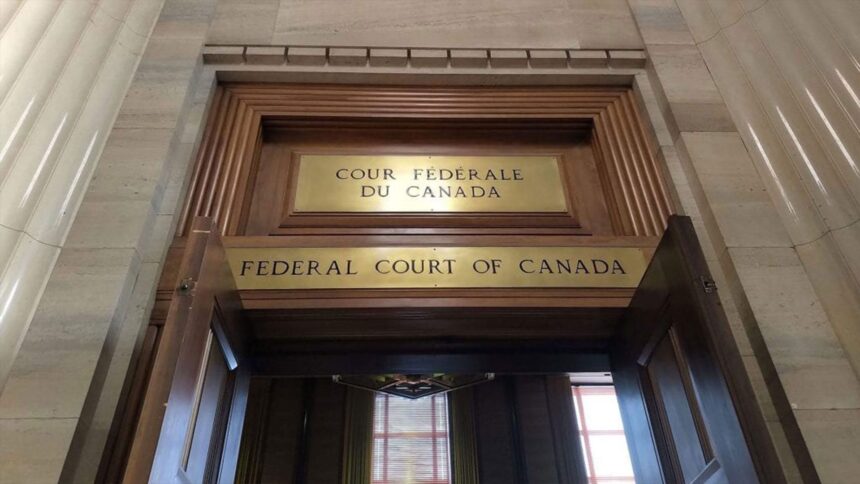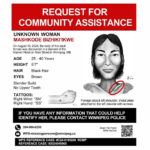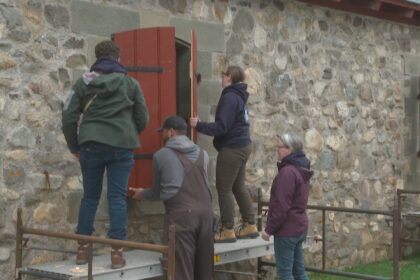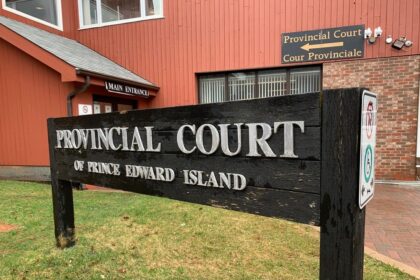The federal government is appealing a federal court ruling that found Indigenous Services Canada (ISC) wrongly denied funding to a First Nations grandmother trying to fix the mould in her on-reserve home where she lives with her grandchildren. Joanne Powless, a member of the Oneida Nation of the Thames, applied for $200,000 under Jordan’s Principle to cover mould cleanup and urgent home repairs, saying her grandchildren are suffering health issues. ISC turned down her request in November 2024, saying Jordan’s Principle didn’t apply. Powless fought that decision in court. On July 10, Federal Court Justice Ann Marie McDonald ruled ISC had taken too narrow a view of Jordan’s Principle. The court ordered the government to reconsider its decision. Instead, the government filed to appeal the decision on Aug. 11, saying the court misinterpreted how Jordan’s Principle works. In its application, the government said Jordan’s Principle should not apply when a special program already exists to help First Nations families like Powless — such as the Residential Rehabilitation Assistance Program (RRAP). The RRAP is an on-reserve housing repair program administered by the Canada Mortgage and Housing Corporation (CMHC). It provides funding to help repair substandard homes on-reserve, making them safer and more livable. The government is arguing programs like RRAP are protected under human rights law because they’re designed to fix long-standing inequalities. Because of that protection, the government claims it shouldn’t be forced to offer anything more, even if the existing program falls short. David Taylor, Powless’s lawyer, says the government is trying to avoid responsibility by pointing to programs that already exist, even when those programs don’t meet children’s needs. “They’re taking the words out of the Charter (of Rights and Freedoms), out of context and going against years and years of jurisprudence,” Taylor said. “If you are disadvantaged and you say the government’s not doing enough to fix that disadvantage … they don’t get to escape scrutiny by just taking a half measure.” The outcome of this case could affect thousands of other children who ISC has denied or cut off from Jordan’s Principle services, said Taylor, because they have used similar reasoning to narrow eligibility since late 2023. Taylor called this a “category error” that he said has been used to reject everything from mould repairs to autism therapy to mental health services. The Federal Court has now rejected that logic in two recent cases – the Powless case, and another it heard separately on June 21 involving an autistic child in Thunder Bay named Scarlet Cully. In the Cully case, ISC denied funding for behavioral therapy, pointing to the Ontario Autism Program as an existing service. The Federal Court ruled that decision was also unreasonable. Scarlet Cully’s case could also be appealed. Photo provided by family. The government has until Sept.22 or say next month to decide whether it will also appeal that ruling. “Cully could still get appealed, but we won’t find out for another five weeks or so,” said Taylor, who is representing both families. The Federal Court of Appeal will hear the Powless case this fall on a fast-tracked schedule. Taylor hopes the court will make clear that the government can’t use partial fixes as an excuse to avoid meeting its full obligations. More: Children cut from Jordan’s Principle services under ‘substantive equality’ should reapply: Caring Society Mother says son is running out of time while family repeatedly denied by Jordan’s Principle ‘He is our hero’: Family of Jordan River Anderson honours his legacy Jordan’s Principle is a legal requirement that governments provide First Nations children with the health, education, and social services they need—without delays caused by jurisdictional disputes or program gaps. It is grounded in the principle of substantive equality. Taylor and advocacy groups like the Child and Family Caring Society have argued substantive equality means the government must look at children’s real-life circumstances—including their health, family situation, and the long-term impacts of colonization— when deciding what services are needed. For Powless and her grandchildren, the situation is urgent. “From Joanne’s perspective, this work has to happen before winter so that it can happen this year,” said Taylor. “And if it doesn’t happen until the snow flies, then it’s not happening until next spring.” Continue Reading
Federal court appeal in Powless case could impact thousands of children cut off from Jordans Principle

Leave a Comment










